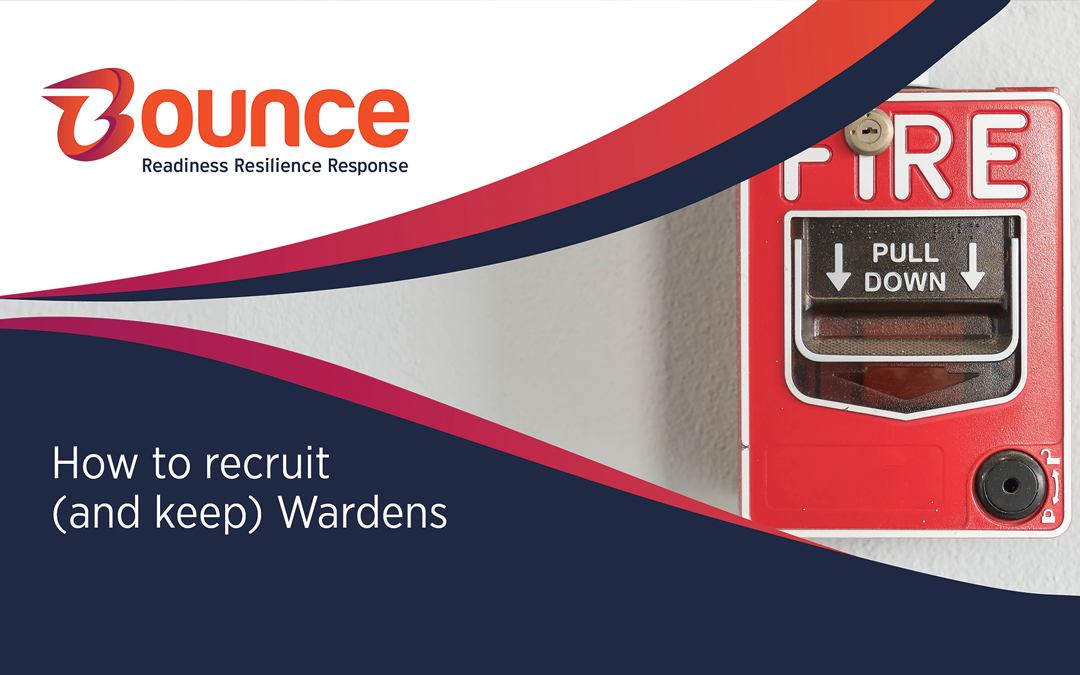Insights from Scott Cresswell (Manager, Emergency Management)
In Emergency Management, no two organisations are the same.
Except that’s not quite true!
Almost every school, company, community group and government department I have worked with has encountered exactly the same problem – how to recruit, and retain, staff to act as Wardens during emergencies.
If we look through a recent history of highly-visible emergencies (think Grenfell Towers, Quakers Hill Nursing Home, or 9/11), we see ordinary people taking extra-ordinary actions to help others during life-threatening emergencies. People want to help other people. So why is it so hard to get people to volunteer in Warden roles?
Reason 1: They can’t see the purpose
“Why do we need Wardens? Isn’t that why we have firefighters? Everyone already knows what to do!”. These are some of the responses we hear when talking to clients about Warden teams. People just can’t find the purpose.
Finding purpose in our actions is a key driver to success, regardless of the endeavour. For wardens, this means understanding the need; why is having Wardens important? Anyone who has been in a session with me would have heard me discuss the average response time of the fire brigade (about 9 minutes) versus the survivability of a person trapped in a compartment fire (about 3 minutes). Firefighters can’t get to everyone in time. Trained Wardens are capable of filling this void, and moving people to safety before the arrival of firefighters. At the risk of sounding hyperbolic, Wardens will save many more lives than firefighters. Just read the story of Risk Rescorla to see how necessary Wardens are in modern workplaces.
Reason 2: They can’t conceptualise emergencies impacting them
A large part of the workforce hasn’t seen major emergencies occurring at their workplace.
Or so they think!
In fact, if you dig into this a little bit, most of us would have some experience with sudden, workplace emergencies? Que Warden response. Colleague having a heart-attack. Call the Warden. Out of control bushfire heading towards the building? Call the Warden. Armed hold-up next door? You get the idea.
Emergencies happen every day. Instead of talking statistics (yawn), encourage staff to watch the news or read the daily broadsheet. Stories of workplace emergencies are everywhere. Your organisation isn’t immune. Maybe it just hasn’t happened yet.
Reason 3: They don’t feel valued
The key to keeping any part of the workforce engaged, is to make sure they feel valued. If you ask for people to volunteer their time and expertise as Wardens, shouldn’t we at least acknowledge it? When was the last time your leader said thank you to a Warden for helping to keep people safe at work? As we write this during National Volunteers week, isn’t it important to acknowledge those people volunteering in our workplace to keep us safe? Thanking people who make our workplaces safer recognises their value to the organisation. Everybody wants to be recognised for their work.
Lastly, if your budget allows for it, make it worthwhile. In my experience, a large number of people will be keen to attend training if perks like coffee or lunch are provided. It’s a small gesture, but it recognises the dedication of those who volunteer to keep us safe at work.
If you need help building a functional Warden team, reach out to us today.

